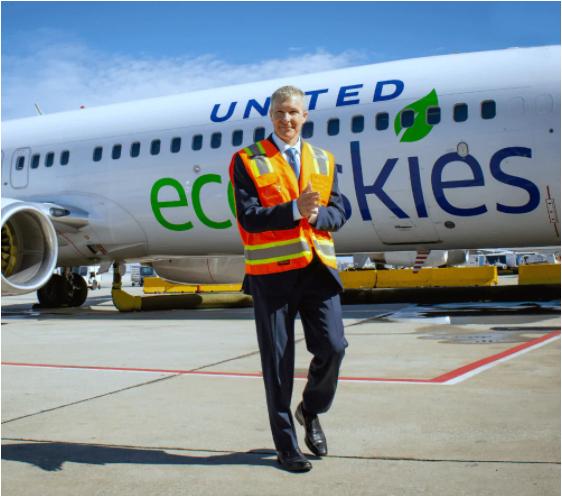
For the CEOs of some of the world’s largest airlines, coronavirus hasn’t just meant wrecked financials and networks. They are rebuilding their carriers with a new perspective on what it means to be a good corporate leader and citizen.
Empathy and social awareness are not attributes that first come to mind when thinking about the average airline CEO, who is nearly always male and often white, even when the airline is based in a predominantly non-white community. It’s a world of men, many of whom are former pilots or who fly personal planes, with a bias towards economics and technology.
But events of the past year—not just the pandemic, but the heightened focus on climate change, the Black Lives Matter movement, the contentious US presidential election and mass shootings—seem to have given some airline CEOs time to think about their companies differently while their fleets were grounded.
United Airlines CEO Scott Kirby put it best in a recorded message to the US Chamber of Commerce’s Aviation Summit, a virtual event on March 31. As domestic traffic recovered, Scott said he realized that people were talking about a “return to normal” but this is not how to think about the recovery. “Too often, that means running the business the way we always ran the business instead of taking the opportunity to completely rethink how we do business,” he said.
Within that rethinking, United is “doubling down” on its focus on customers and wants to play a larger, global role in society—specifically in diversity, equality and inclusion initiatives and in climate change, where United aims to be “100% green” without relying on carbon offsetting.
American Airlines CEO Doug Parker, another speaker (with whom Scott was a long time executive team mate at America West, US Airways and American), spoke emotionally about how the pandemic had inspired “unprecedented collaboration” between US airline management and their labor unions on everything from virus health safety and public messaging to campaigning for government support. “It’s the most exciting thing that came out of the pandemic,” Parker said. “We can get a lot more done in the industry when we work together and when we give our people a voice.”
Delta Air Lines’ CEO Ed Bastian had an abrupt confrontation with this new world this week. Having initially stayed out of the furor about a new election rules law in his airline’s home state of Georgia, he was forced to take a stand. In a memo to employees reported by several US newspapers, he said, “I need to make it crystal clear that the final bill is unacceptable and does not match Delta’s values.”
The cynical would say this newfound social awareness is entirely based on a scramble for business in a dire environment. Was Bastian’s about turn spurred by large corporations that want to see those with whom they do business, including their travel providers, align with their diversity and equality values? Has Kirby seen an opportunity to be America’s top green airline because of the appeal to younger travelers and to eco-conscious corporations? Of course, Parker’s message that “stronger together” is also a boardroom win if it avoids costly strikes.
None of these three are blazing trails in airline c-suite empathy. Exhibit A: Herb Kelleher, who deftly (but genuinely) made every employee and almost every customer feel as loyal to him and the Southwest brand as to their families. Until the pandemic, Southwest was also the only US airline to be consistently profitable—and it remains the only US major to not have issued a single furlough. Current CEO Gary Kelly, a finance guy, has continued that people-and-values-first ethic. Alaska Airlines, under recently retired CEO Brad Tilden, created some of the strongest community support efforts in the industry; Robin Hayes at JetBlue is passionate about their community projects, the JetBlue people and taking care of the customer. Many Asian carriers have been far ahead of the US airlines in this respect.
On the other side of this pandemic, caring about what your employees and customers care about will be less a “nice to have” and more of a business requirement; it will become a competitive tool. If coronavirus makes airline CEOs more caring beyond flying safely and filling seats, it will ultimately help shape a better industry.



